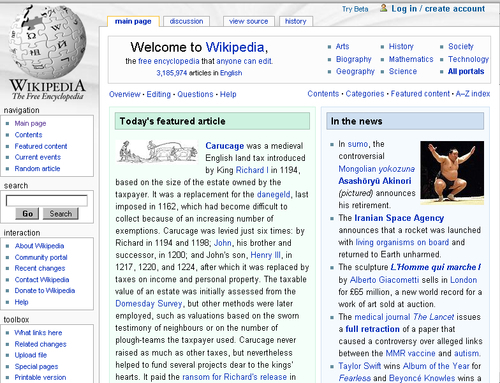Many people first became familiar with the term wiki when they were introduced to Wikipedia. While it is the most popular wiki to date, the wiki's roots go back further than Wikipedia.
Although development of the first wiki began in 1994, roughly seven years before Wikipedia, it was not introduced until March 2005 by Ward Cunningham. WikiWikiWeb, as Cunningham called it, is written in Perl and derived its name from an airline employee in Honolulu telling Cunningham to take the Wiki Wiki Shuttle. The Hawaiian word wiki means quick so Cunningham was being told to take the quick shuttle. Cunningham later explained that he chose the name wiki wiki as, "an alliterative substitute for quick and thereby avoided naming this stuff quick-web."
WikiWikiWeb wasn't just a catchy name that Cunningham had thought up, it had a purpose. As a programmer heavily involved in the Portland Pattern Repository, Cunningham developed the wiki as a way for programmers to quickly create and share ideas with other programmers who contributed to the Portland Pattern Repository. With this new tool, programmers could collaborate with one another on projects without the need for a webmaster to upload new or edited content because the wiki lets the participants do all of this from their own web browser.
After Cunningham deployed WikiWikiWeb as a supplement to the repository site, he began inviting other programmers to contribute content. The plan was to have interested parties write web pages about the people, projects, and patterns that have changed the way they program. Cunningham wrote to his colleagues, "Think of it as a moderated list where anyone can be a moderator and everything is archived. It's not quite a chat, still, conversation is possible."
With that, the ball started rolling and WikiWikiWeb still exists today as the largest wiki related to a single topic. You can visit the original wiki, although it has evolved over time, by going to http://c2.com/cgi/wiki?WikiWikiWeb.

As word spread about the success of Cunningham's wiki, others quickly adopted this technology for their websites. Soon, clones of the original wiki engine were starting to emerge in just about every programming language available.
Just about the time wikis were really starting to emerge as a viable tool, the Web 2.0 attitude took over many of the design concepts for the web. Developers and designers started looking at technologies that could help promote interactivity and participation from their visitors, not just the web masters. The freedom to collaborate and participate made wiki engines a perfect fit for the Web 2.0 paradigm because of the following reasons:
A wiki is a piece of application that is used for collaborative participation
Users are the primary contributors to wikis
Users have the ability to edit existing content
Users do not have to register for the site before contributing; making the wiki a truly open platform
User participation determines the site's success
While wikis remained popular within the programming and technical community, it wasn't until the introduction of one wiki in particular that the concept really took off with the average user.
Since 1999, Jimmy Wales had been running a site called Nupedia as a free content encyclopedia with content written by experts. To make the content comparable to that found in professional encyclopedias, everything submitted underwent an extensive peer review process before it was published. In January 2001, Wales decided to create an encyclopedia with far less restrictions than his current Nupedia project. This encyclopedia would take on the slogan of the free encyclopedia that anyone can edit. To allow contributions and edits from the public, Wales and Nupedia editor Larry Sanger turned to a technology that the programming community had been using for years, the wiki.
While Nupedia ceased operations in 2003, its counterpart, Wikipedia, has grown into the largest wiki in the world with over 6 million articles written in 140 different languages!
Wikipedia is what introduced much of the world to the wiki. Not only is it the world's largest wiki, but it runs on the MediaWiki engine that we are going to install and configure over the course of this book.




